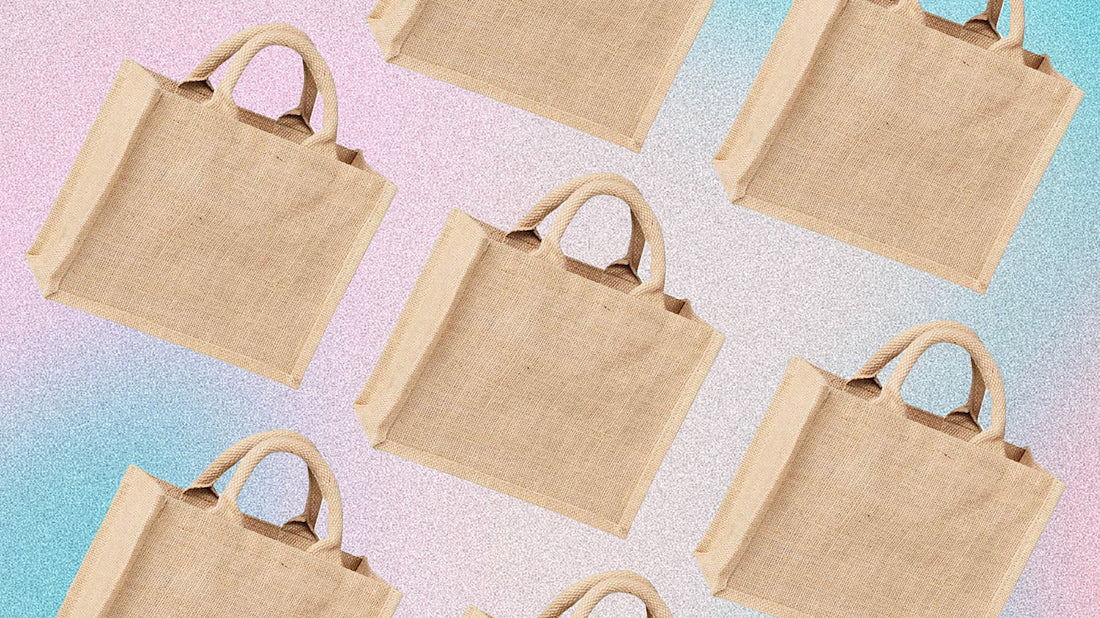We’ve seen fewer plastic products lately as the world has slowly woken up to its detrimental effect on the planet. More sustainable materials are beginning to replace plastic for many purposes like shopping and packaging. Jute is one of them.
Jute is a garden plant with leaves consumed as a vegetable and sometimes for medicinal purposes. The vegetable fibre has a shimmery sheen and has a flexibility and bounce ideal for making into various materials. The superior quality of jute fibres made it a popular material in making rugs, carpets, canvas, tarpaulin, and bags.
Jute is also called the ‘golden fibre’ and is Bangladesh’s number one cash crop. In the 1940s, Bangladesh has 80% of the world’s market share of jute. This dwindled to 25% in the 1970s when many countries saw the plant’s potential and cultivated it in their lands. Soon after, India, Myanmar, Nepal, Vietnam, Cambodia, and Brazil exported jute to the world. The biggest importers of jute are the United Kingdom, Belgium, Italy, and the United States.
Despite fierce competition from other materials like bamboo, abaca, and pineapple fibre, jute had a massive production in Bangladesh in 2020, amounting to 804 million tons.
Today, jute is famous for transforming the shopping experience of many consumers. If you wish to get your hands on fashionable jute shopping bags, you may check them over at this website.
Here are some of the benefits of jute shopping bags:
Unlike ordinary paper bags, shopping bags made from jute fibre are robust and can carry more weight. You don’t need to worry about the handles snapping or the bottom giving out while you do your shopping. Thus, bring along a few when you shop and stock up on all the goods you want for your family; your jute bag can handle it.
If you want to clean your jute bag, simply wipe it with a warm wet cloth and you’re done. Because it’s a natural fibre, washing it is prohibited as it might lose its structure and the colour of the print may come off.
A jute bag will last about two years or longer if you take good care of it. Bring it anytime you go out to shop. When you have used a jute bag 30 times, you lower your carbon footprint and reduce waste compared to when you constantly use plastic bags. Always dry the bag if you accidentally got it wet to ensure it lasts longer.
Jute plants reach maturation every four to six months, so it needs less agricultural effort to cultivate them. Because of this fast-planting turnover, they require less land to grow the plant and won’t encroach on lands where animals live. Even more beneficial is that jute makes the land more fertile for the subsequent crops, meaning fewer fertilizers to consume for their crops to thrive. Jute also uses less water to process, much less than the amount cotton needs.
Jute is also a resilient plant and only relies on natural rainfall to thrive. This means that the land where jute plants are grown does not require irrigation.
Besides, the jute plant has outstanding carbon dioxide absorption and oxygen release to the environment compared to other trees. Some parts of the jute plant can be made into paper, an excellent resource to limit the deforestation rate worldwide.
Jute degrades biologically in one to two years, and once you have maximised its use, you can use it in compost as plant fertilizer.
Disposing jute has a minimal environmental impact, too. Its sustainability benefits even go beyond its use.
You can transform jute bags in many ways. Bags of varying shapes and sizes can be made of jute fibre because of their flexibility and bounce. It can also be dyed and painted to create artistic runway-worthy designs.
Shopping bags have become a medium to reflect a person’s sentiment, belief, and opinion. You may use jute shopping bags to tell the world what you stand out for or support. It could be an inspiring way to let people know of your advocacy.
Conclusion
Shopping for your groceries takes up a lot of energy and increases one’s carbon footprint. Trying to substitute even the little things you do to at least lower the footprint you leave can make your shopping expedition a sustainable one. Try replacing plastic bags with jute bags for one, and see where this change takes you. You have a way to help the environment; you only need to be aware and open to all possibilities.

